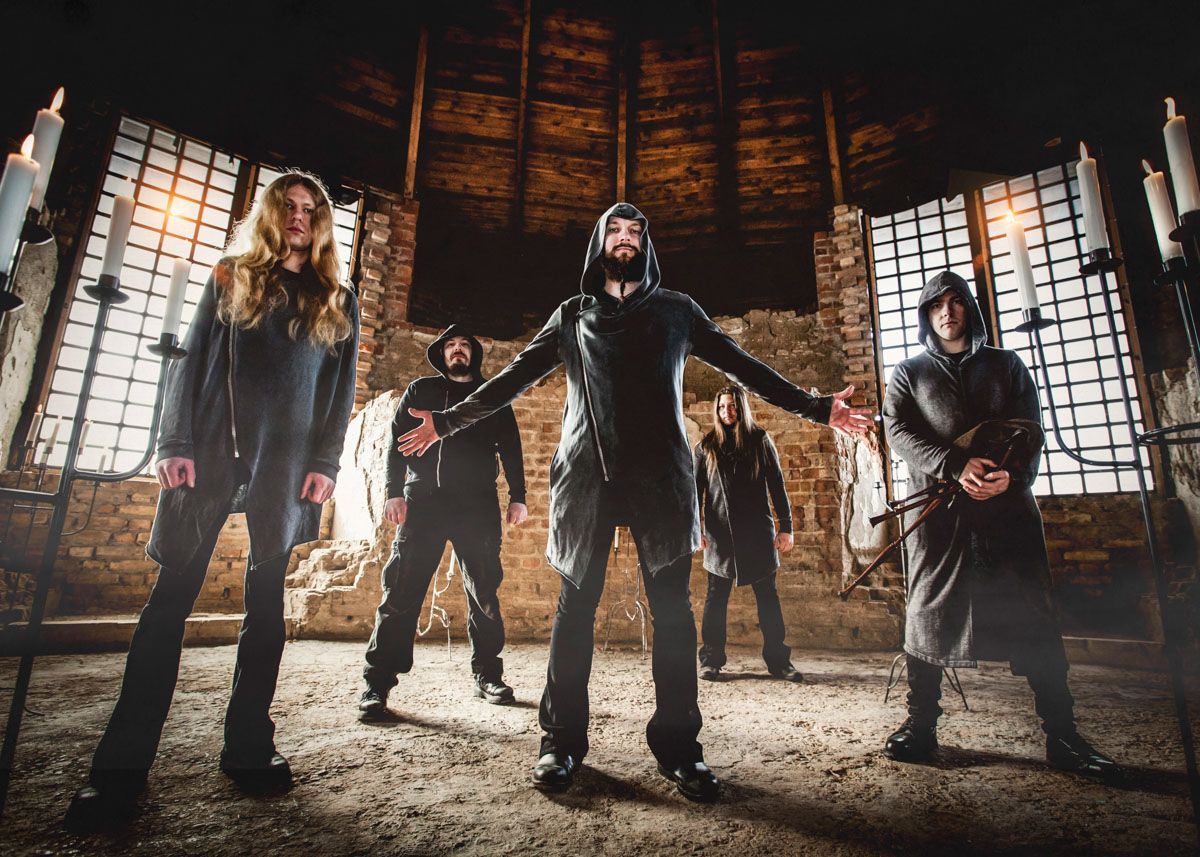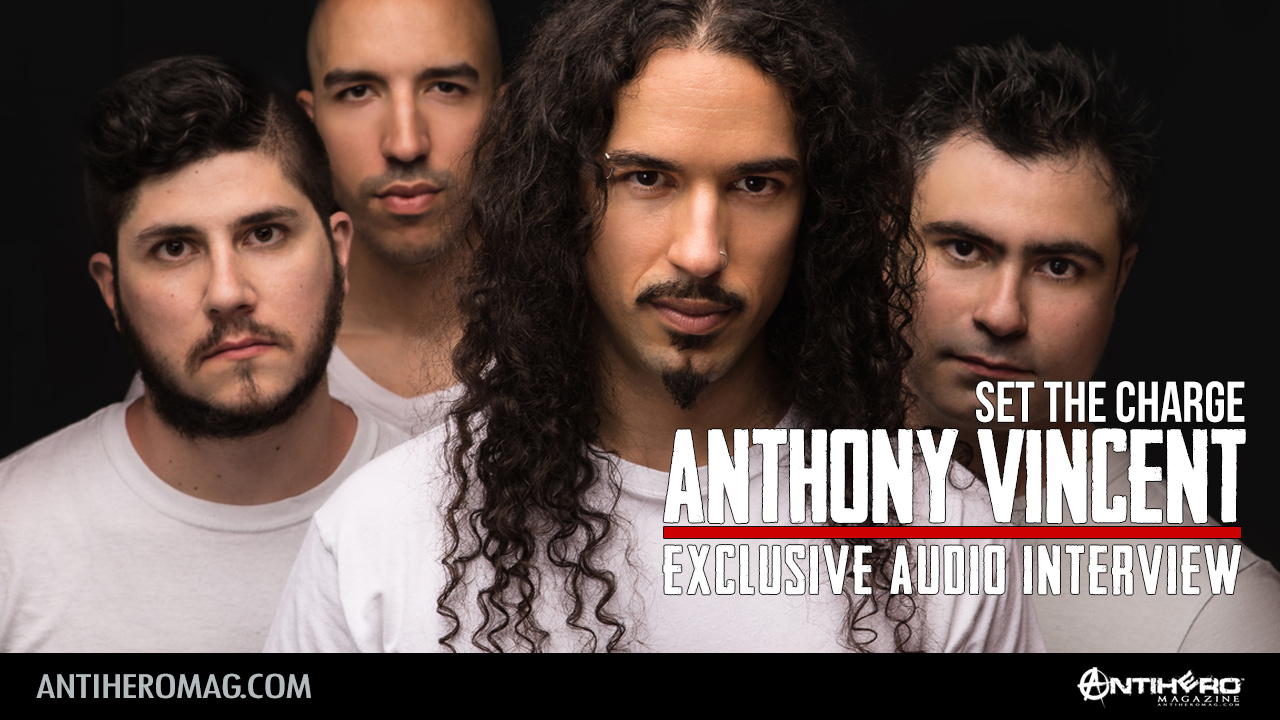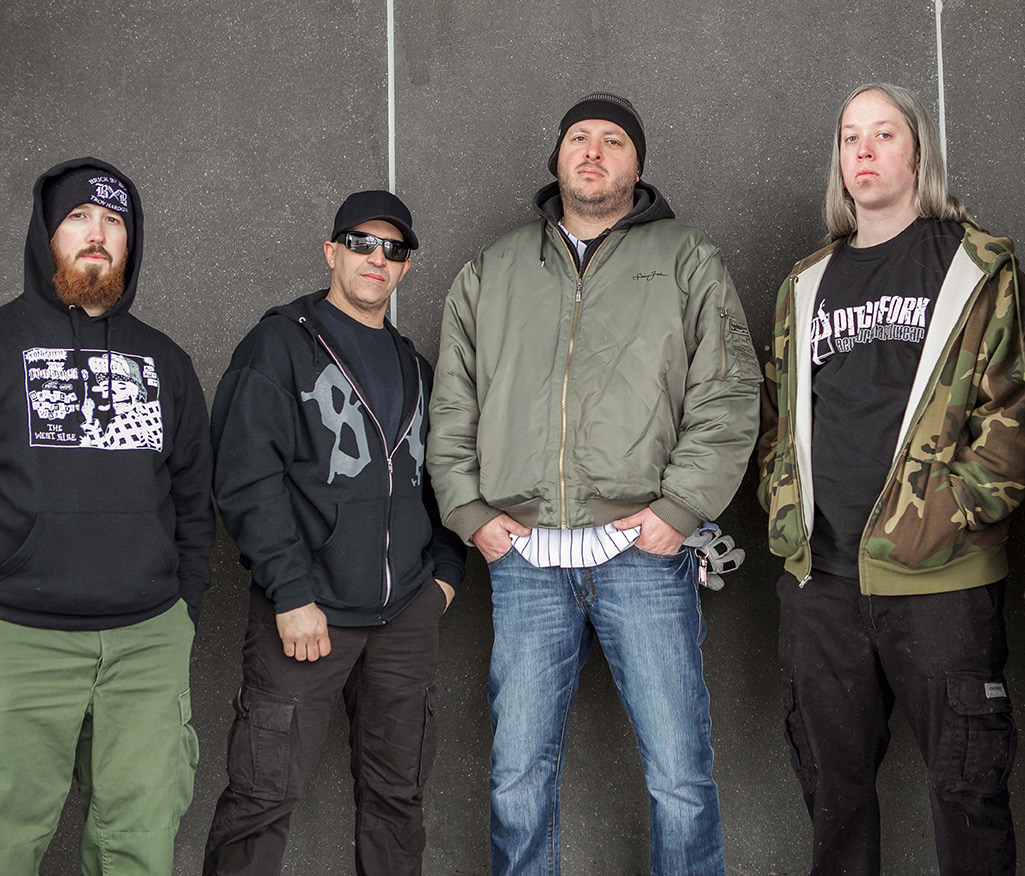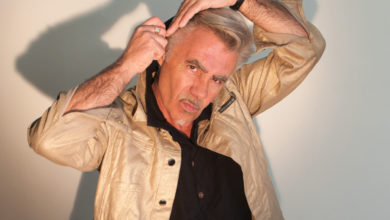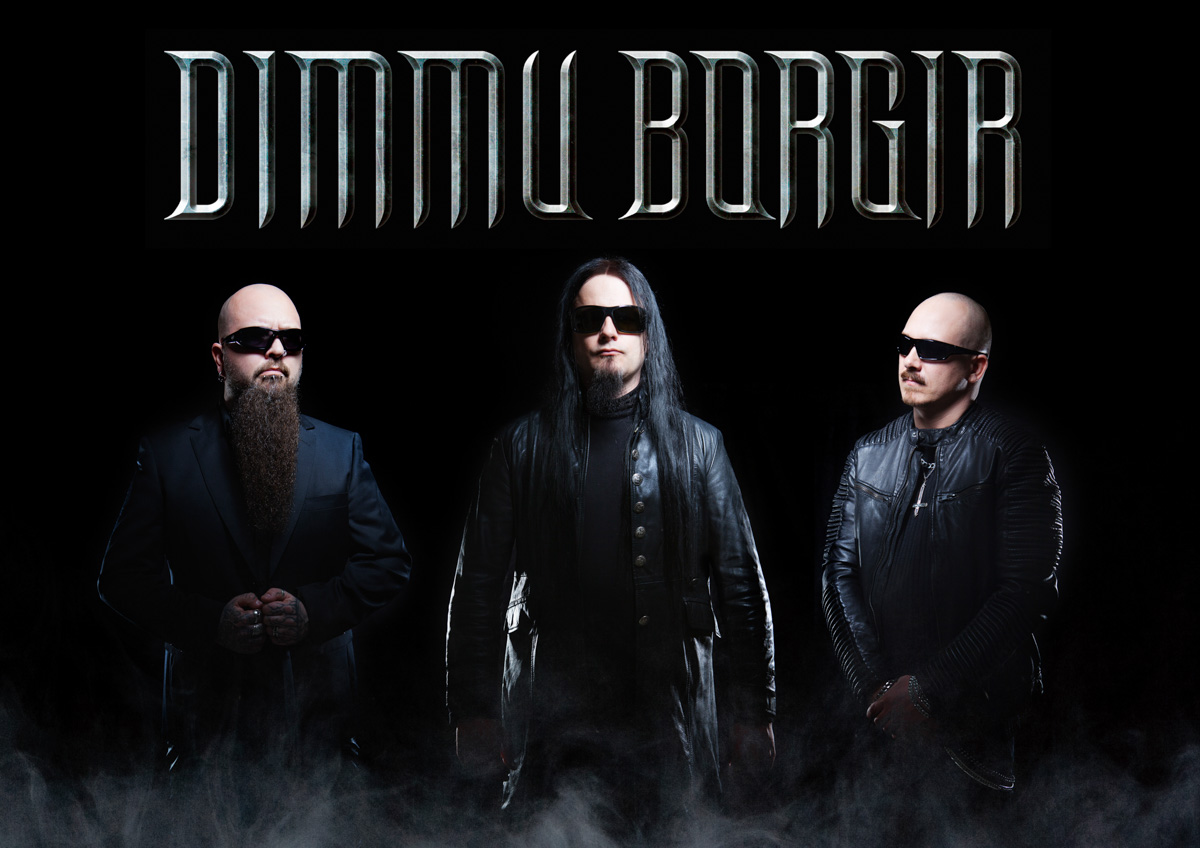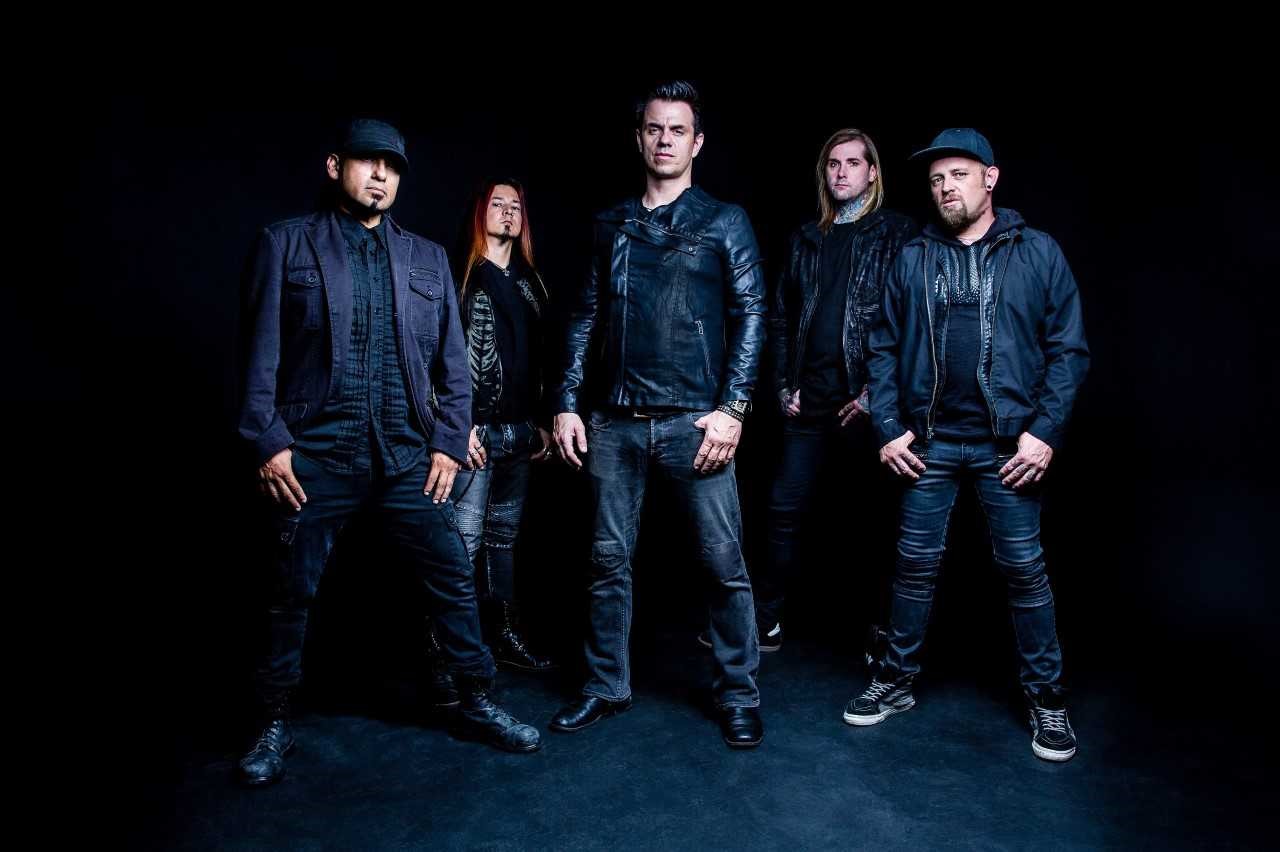Antihero Magazine photojournalist Scott Martin spoke to Erik Larsson, guitarist/multi-instrumentalist of Sweden’s medieval/folk/doom metal masters, Apocalypse Orchestra about the band’s recent release, The End Is Nigh.

ANTIHERO: Can you tell me a little bit about Apocalypse Orchestra?
Erik Larsson: Well, the band sprang from an earlier band that me and Mikael Lindstrom were in. The band played together, with the drummer Andreas, and then that band went barely up and we decided we want to do something a bit more extreme than we were playing in the previous band. Michael had an idea of combining medieval style folk music with metal but instead of doing what most other band do with that metal style music and first and more up-tempo metal, we decided to go in a totally different direction and immediately found out that a lot of medieval sounding metal, and also the authentic old medieval metal, really came to life in a whole new way when played very slow, and then we just went from there
ANTIHERO: Was the old medieval sound, also known as Pagan Metal?
Erik Larsson: Not exactly, the Pagan Metal scene and the folk metal scene are quite free and contemporary and that’s one of the things I like about it as well, you can borrow and be inspired by many types of folk music and don’t get me wrong, we are as well but we really wanted to narrow it down on a certain type of musical feeling and a certain era in time, both lyrically and musically. So, it’s a bit more, I don’t know, it’s hard to describe in words, it’s easier when you hear it. It’s a bit more distinct, a bit more drone-like, and repetitive, it’s sometimes a bit sacral as well given that the composers in the time was heavily influenced by the ruling hands in Europe.
ANTIHERO: Describe where does your musical sound derive from?
Erik Larsson: We have a lot of influences, a lot of people have compared us to being a doom band, I don’t know if it stems from us playing a bit slower than the normal folk metal bands or it’s actual influence they hear from doom but we like a lot of classic doom metal bands. But we also put together like all kinds of music from progressive rock, folk music, jazz, metal, we’re very wide musically in the band. We also wanted to make it clean and we wanted to have a pure production and together fit it seamlessly with the ancient instruments, I mean let’s face it, we are a modern band looking at olden times, not an old style band looking at modern times.
ANTIHERO: Can you tell me, what instrument do you play?
Erik Larsson: Yeah together, we five play a lot of stuff. I play everything that looks a bit like a guitar, Jonas and Rikard the mandola, and Michael plays all kinds of weird old instruments like hurdy gurdy, bagpipes and a lot of other Swedish traditional instruments as well, I don’t if you know what a keyed fiddle is?
ANTIHERO: No, I don’t.
Erik Larsson: It’s like a mix between a fiddle and a hurdy gurdy.
ANTIHERO: I just love the way the hurdy gurdy sounds, it looks like a fun instrument.
Erik Larsson: Yeah, it’s a really cool instrument and, oh I don’t know what the hell they were thinking in the 12th/13th century when they constructed it, being so complicated in it’s structure. Also we use different kind of wind instruments, lutes, citters, mandolas and that sort, and it’s a bit… you have to carry it out carefully because you can very easy to get caught in a trap where the instruments become like a gimmick and we don’t want that, we want them to actually have their place in our music and that’s also been a challenge in the production. When you record instruments and they sound very different from what people normally are used to hearing in the metal scene, it’s tricky. At the same time, when we want to attract people that are not normally “metal head”, you have to also fit the metal music with the traditional or folk sound. Not that we’ve been necessarily trying to reach every audience, but you want to maintain some sort of balance none the less.
ANTIHERO: Oh yeah, most definitely. Can you tell me a little bit about your song writing process?
Erik Larsson: Yeah, usually it starts with me and Mikael discussing ideas or one of us having a new riff for the melody or sometimes we search old archives and musical sheets for old traditional melodies, plus Mikael is a real wizard when it comes to composing a contemporary melody that sounds old and traditional. And the strength we have together, or what makes the process work well, is that as soon as he presents something to me, all my gears go into motion at once and I usually come up with some sort of arrangement in my head, then we just go to the computer, to put them down and just have to cut and paste and feel our way from there, and we all always have a bunch of lyrical themes backed up, so we try to listen to what the feeling is, and what the music is saying by itself and then we carry on with a corresponding theme.

ANTIHERO: That was going to be my next question, I was going to ask, what subjects inspires your lyrical songwriting?
Erik Larsson: What were the toils of the everyday medieval man? They are few bands that shed light on those kind of topics, it’s usually like “the glory of war”, and drink from the skulls of your enemies, or something like that. And don’t get me wrong, I kind of have a crush of a lot of those bands and that stuff as well. You have this big wave of pagan metal and Viking metal that’s been growing and getting bigger over the last 20-30 years, and I don’t see the end of it, it’s glorious. But at the same time, imagine a peasant in the 1350’s on the brink of war, maybe involuntarily recruited into some peasant army… I don’t think anyone liked it, there wasn’t any glory, it was horrible! And even in their every day lives, you had always this impending doom hanging over your head, the apocalypse just over the horizon, the church with its damnation, the lords and their taxes, foreign countries with war, famine, pestilence… It must’ve been really tough and we want to tell the tales of both sides.
ANTIHERO: I’ve been looking forward to talking to you guys about your performance you did a couple years ago with the Gävle Symphonic Orchestra. Was that something you guys set up or were you just one of a few bands performing that evening?
Erik Larsson: Gävle is the town where we live. It was a few years ago, actually just about when we started to play live. There was an opportunity during the autumn that year. Swedish Death Metal band Entombed were going to do a concert with the symphonic orchestra and they invited some friends (the Swedish Death Metal band Sorcery) and also two new bands were to be given a chance, and we actually got the slot. We had just started to play live, so you can imagine the stress we were under while at the same time the enormous joy of it all. It was an experience of a lifetime. Super humbling to be standing there with orchestra and a choir in a sold-out concert hall. And all the other bands were aggressive death metal bands, screaming and grunting, and then along came we, very slow, cinematic and folk music style, so the orchestra really got to do different things that night!
ANTIHERO: Can you tell me, how was the crowd? I mean, I see the crowd they look like they are sitting there with their hands in their laps.
Erik Larsson: It was really a mix type event, you have people who are only there for Entombed, and we have those that are only there for the orchestra, and everything in between. You have people sitting in tuxedos next to the guy with a leather vest with patches. Personally, I love music cross-over. Hell, I like anything cross-over, so was a perfect evening and a perfect event for all different kinds of people, musically so to speak. And of course, it’s the regular concert hall for symphonic orchestra, so you don’t have a choice. You have to sit in the audience, but at the end of each band performance, all was up on their feet and cheering, totally unreal, especially for us being a new band. And that’s also been an interesting theme in the following years since then. A lot of appreciation our way has not only come from the metal scene, but from quite different venues and different events, which is kind of both fun and interesting that our music can really cross boundaries.
ANTIHERO: I’m imagining, you probably fit right in because you’re playing the hurdy-gurdy and you playing all the instrument that can fit in with orchestra and non-metal crowd could really appreciate that and they really enjoyed it.
Erik Larsson: Yes, we didn’t specifically set out to do so, even though we make metal and it’s supposed to be dark and heavy, it’s still nice to have in mind that it would be fun if my grandma could listen to it.
ANTIHERO: Exactly, I hear you there.
Erik Larsson: And it was also quite interesting that even though the symphonic orchestra here is an orchestra of quite high pedigree in Sweden and it’s a full symphonic orchestra with professional musicians beyond belief, even amongst them, most of them had not seen real hurdy gurdy up close before.
ANTIHERO: Have there been any rumbling in the Apocalypse Orchestra camp about releasing a DVD/CD package from the “Evening with the Gävle Symphonic Orchestra”?
Erik Larsson: We have the two videos on YouTube and that’s probably the only thing that there’s ever going to be. We got our hands on some of the video material, plus we had some people with cameras filming for us, and we had talked with the concert hall so that we could get the recorded audio for the show. Then a friend of ours (who also mastered our debut album) did the audio production for the videos. That’s it, that’s the only thing that there is, so it was a real DIY project. Later, when the album was composed, we felt that maybe The End is Nigh wouldn’t fit the album together as well as the others, so we just let it have an honorable place with symphonics, so people can watch the video, but other than that, I don’t think it will end up on any album.
ANTIHERO: Can you describe the recording process for when you recorded The End is Nigh?
Erik Larsson: We actually started to record the album prior to our signing with the “Despotz Records” and we had made most of the recordings ourselves in our home studio and we were just about to start with the drums with William Blackmon at the Overlook Studio. Then the guys at Despotz contacted us, and about a couple of weeks later we signed, so we just carried on with the recordings, but maybe with a different focus and I think we actually put a lot more time and energy that we maybe wouldn’t have done if we had released it ourselves. So, we had some ground work done, and then we did the drum recording which was amazing. And then we carried on, and continued to record the other instruments ourselves. We also had help from our friend Erkan Dogantimur recording the vocals, then we shipped it all off to Per Nilsson (Scar Symmetry) at Studio Kabyss who did an amazing mixing production on the album. Finally, Frederik Groth mastered it all.
ANTIHERO: How long have you been a band exactly?
Erik Larsson: The concept started out 2013, just me and Mikael and soon we realized that this was going quite fast with all the composing and it was a time to perform live, especially with the opportunity of the orchestra gig. We asked our drummer from previous bands, Andreas, to join, as well as our friend Jonas and Rikard, and it all went really quickly from there. During 2014/15 we were just continuing to compose and playing live ever as much as we could and we signed with our label 2016. So, we’ve been around for a few years now, but still it feels as if it has moved really fast.
ANTIHERO: I hear you there. In your words, can you describe a Apocalypse Orchestra show?
Erik Larsson: Naturally, it depends on the venue, but during ideal circumstances, we want to offer a special show. We may bring some special instruments to play live, those that can be heard on the album. We will probably have some guest musicians coming up on stage, we will maybe have some fire breathers, fire dancers, others performing with us in the songs and such. When we had our release party for the album in May we also had our choir performing with us live! So, you can imagine that we couldn’t bring the whole package to a small basement club. However, we like to play all different types of venues! I love to be closer to the audience with them all up in your face, but I think maybe it will be frowned up if someone were to breath fire just over the head of the audience in such a place!
ANTIHERO: What are your plans for the rest of the year? Do you have any festivals?
Erik Larsson: Nothing right now, festivals will probably happen more next year since the album was released quite early this year, most of the festivals are as you know, already booked since the previous year. We’re looking at some gigs later in the autumn. It would be wonderful to go out as an opening act for an established band in Europe, and naturally going to the States would also be quite a wonderful treat. But I think the latter is a bit further down the road, if I’m honest. I really love the new wave of the pagan metal spreading like wild fire all over the States, especially on the east coast. A lot of new pagan festivals and stuff.
ANTIHERO: I know, there’s a lot of European bands that don’t come to the US at all, is it the visa thing or getting a sponsorship or whatever? I mean so many great bands.
Erik Larsson: Tourist visa or working visa… it’s all tricky to plan, but when it comes down to it, it’s mostly economics. You have to be able to be at least close to breaking even if you’re going over for a festival, and when you are already over there do some additional gigs. Of course, the opportunity to follow a bigger band on tour solves some of those issues.
ANTIHERO: Like merchandise and gear?
Erik Larsson: Yeah, I know bands who rent stuff and order merchandise to be ready when they arrive in the States with just their normal suit case, but when you have a custom built hurdy gurdy, you don’t have any choice but to have it go with you on the plane.
ANTIHERO: Yeah, it’s not like you can go into any music store out here and order a hurdy gurdy.
Erik Larsson: Not exactly, we’ve been painfully aware of this from the get go, we’re not making it easy for ourselves. I mean, personally I would love to play every week, but we also have to realize that it’s probably better that for us, as well as better for the experience of the audience, to maybe do fewer gigs, but really make those gigs count!
ANTIHERO: I interviewed Paul Kuhr from Chicago Doom band Novembers Doom a couple months ago.
Erik Larsson: Yeah, I really like those guys!
ANTIHERO: And he said it’s like they have the option of going out the road all the time, for like a couple of weeks or they could play a couple festivals and they take the festivals over a continuous tour because playing about 3 or 4 festivals would give you more exposure rather that and 2-week tour.
Erik Larsson: Yeah, plus the fact that both they and us aren’t 21 years old and everybody’s single and stuff. If Novembers Doom is reading this and if you need an opening act from Europe, call us guys, haha! But it’s the same here, the big festivals in Germany, France, Spain, we could just get into a bus and go, I mean, it’s closer for me to go to Berlin and Rome than for you to go to Chicago, so for many festivals are easier than a tour.

ANTIHERO: What is your opinion of online streaming sites such as Spotify or Pandora?
Erik Larsson: That’s a fickle thing nowadays but also the natural way the technology has evolved, and the industry may not have evolved along with it, but are starting to catch up now, and we notice that it’s very different between different countries, and I hear the same from friends in other bands as well as my previous experience with my own prior bands. It’s very different from country to country. Not every country has superfast internet all over the place, so streaming is bigger in some countries and the downloads is more common in others. It’s very different. And streaming services could of course mean a loss of income, unless you’re Rihanna. But still, our personal experience with Apocalypse Orchestra has been a bit unexpected, because I even searched for our album on various torrent sites and of course it’s all over the place, but I think in the end, one thing leads to another, and if people are on a limited budget, I can imagine them “shopping around” with free alternatives before they decide where their one-album-a-month budget is going to be spent this current month, if you know what I mean. Imagine your student days, your school days. I can relate, because I could buy like 1 or 2 albums a month, that was what I could afford, so I had to like stand in the record stores, listen and decide which one I’m going to spend my money on. I think it’s the same thing now, plus, I’ve discovered tons of music online myself! But it’s also more difficult to stand out because everybody with couple hundred bucks worth of recording equipment can make music and publish themselves, so it’s getting quite crowded out there.
ANTIHERO: I know that downloading and streaming takes money out of your pocket, you work hard to make an album. Like I watch you guys on YouTube, and the other place I go to is Spotify, I love Spotify. I’ve found so many bands on Spotify that I would never have known and somebody will go there so that they don’t pay for the album, but they listen to it and they say, “oh I like this, if they have a concert I’m going to buy a ticket to see them, I’m going to buy a T-shirt”, so money you don’t get from that, you get somewhere else.
Erik Larsson: You make an excellent point there because if you look back to the 80’s, bands had to tour to sell albums, now you have to make an album so people come watch you on tour, so I think the amount of money that’s in motion is about the same, only it’s spent on a different type of media, but still someone else takes most of it, of course. I think a band today can make the same amount of money gigging as they could 30 years ago by releasing albums. It’s just the shift in focus. For others, it’s a disadvantage because they’re probably more of the studio band, for others the opposite. We all just have to roll with the times.
ANTIHERO: Exactly, basically is there anything else you would like to add? What we haven’t discussed?
Erik Larsson: For those of you out there, thank you for listening to us and we would love to someday visit the States as well, all over the place, and especially festivals, Renaissance Fairs or anywhere where our atmosphere would fit in!
ANTIHERO: Good Call, Renaissance Fairs are quite popular out in the States.
Erik Larsson: Oh, I’ve heard! The same in Europe, there’s more and more every year, and that’s like a perfect non-metal venue for us as well.

